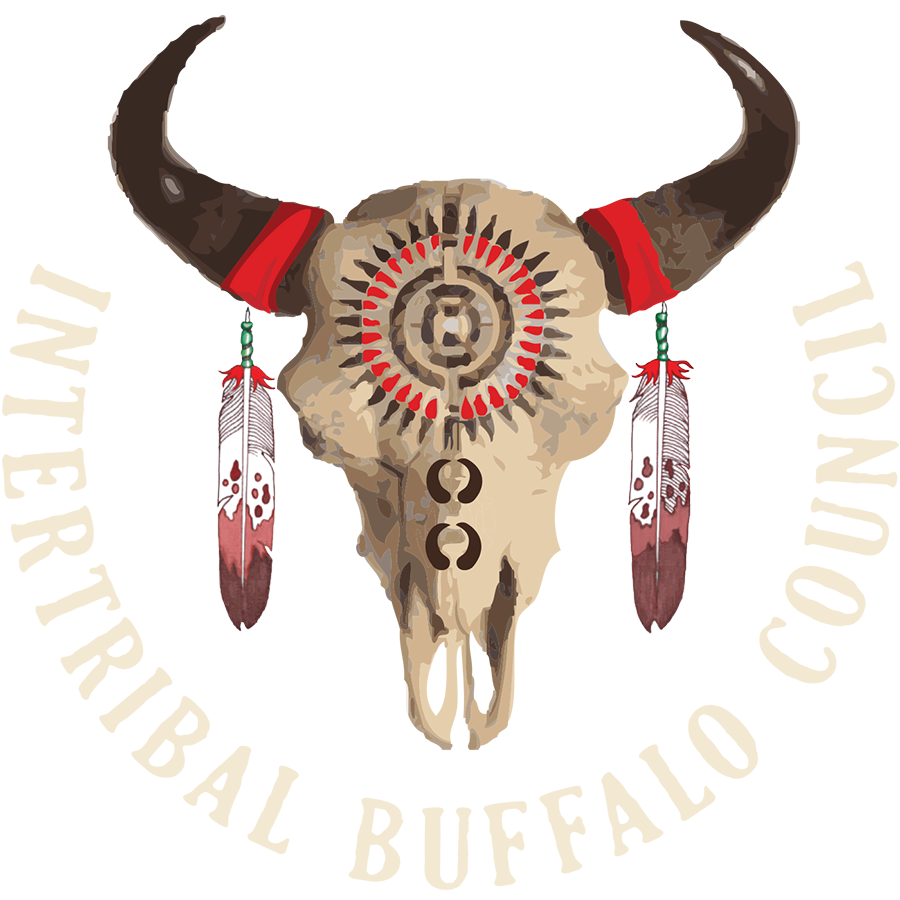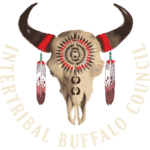Climate-Smart Markets For Tribal Buffalo
Climate-Smart Markets for Tribal Buffalo is a project funded by the Partnerships for Climate Smart Commodities grant program of the United States Department of Agriculture (USDA). The USDA has awarded ITBC a grant of approximately $5 million over a three-year period. This project will expand climate-smart buffalo meat markets in InterTribal Buffalo Council’s 80-member Tribal nations’ lands supporting farmers and ranchers with implementation and monitoring climate-smart practices.
WHAT IS THE PARTNERSHIPS FOR CLIMATE-SMART COMMODITIES PROGRAM?
USDA is committed to supporting a diverse range of farmers, ranchers, and private forest landowners through Partnerships for Climate-Smart Commodities. This effort will expand markets for America’s climate-smart commodities, leverage the greenhouse gas benefits of climate-smart commodity production, and provide direct, meaningful benefits to production agriculture, including for small and underserved producers.
USDA is investing more than $3.1 billion for 141 projects through this effort and all the projects require meaningful involvement of small and underserved producers.

This project’s Measurement, Monitoring, Reporting & Verification (MMRV) activities:
- Training Tribal buffalo herd managers to use the Carbon Management Evaluation Tool (COMET) and related tools to evaluate carbon sequestration and GHG reductions.
2. Conducting field measurements including biological surveys on each enrolled site, along with recording climatic conditions, and herd management strategies, to track and verify GHG benefits associated with Tribally-managed buffalo herds over time and under different management scenarios.
3. Supporting a Native graduate student and rangeland managers on CSAF practices during all phases of the project.
Marketing Highlights:
The Tribal Buffalo Market Initiative will provide technical assistance for the development of market opportunities, providing outreach and education materials that market buffalo as climate-smart. Outreach products developed will be distributed to Intertribal Buffalo Council Member Tribes and their 1milion+ enrolled tribal members, including educational materials highlighting buffalo as a climate-smart commodity, with infographics showcasing the buffalo’s place in the carbon cycle, along with educational videos, pamphlets, and other materials relating to the health benefits of consuming buffalo meat. An online platform will be developed to link partners and stakeholders and foster the development of market opportunities.
Tribal participation in what the USDA NRCS currently defines as climate-smart agricultural and forestry (CSAF) practices as they relate to Tribal buffalo production is limited. ITBC will employ a new position, a Climate-Smart Technical Service Provider to lead the development of a new program for CSAF practices as they relate to Tribal buffalo herd management. Tribally managed buffalo programs represent a wide range of geographies, climates, herd sizes, goals, and available resources. Current NRCS CSAF practices will be reviewed by the team and ones that relate to Tribal buffalo production will be adopted into the program.
In the project’s first year, ITBC staff and partners will initiate research and development of the Climate-smart Agricultural and Forestry (CSAF) Incentives and Technical Assistance Program focusing on Tribal Buffalo Producer participation. The Team will design the structure, recruitment plan, and implementation of a CSAF Incentives and Technical Assistance Program that will reward Tribes who move towards these climate-smart practices. ITBC will work closely with its partners to produce a program that meets Tribal buffalo producer needs, but also accomplish the implementation of verified CSAF practices. ITBC and partners will seek funding to continue implementing the incentives program beyond the project period. The Incentives Program and associated reports will be available to USDA for further distribution and implementation to serve as a model program in administering future funding opportunities to Tribes and buffalo producers across the nation.
There is a limited number of Tribal buffalo producers participating in what USDA NRCS currently defines as climate-smart agricultural and forestry (CSAF) practices, and very little verification of those practices and how they contribute to reducing the impacts of climate change. To address the challenge of a limited Tribal market for buffalo as a climate-smart commodity, this project will develop a Tribal Buffalo Market Initiative (TBMI) which will assist Tribes in marketing their buffalo as a climate-smart commodity. The results of this project will address the need to develop sustainable programs for historically underserved Tribal buffalo producers and address the need for a Tribally led national strategy for education and outreach of buffalo as a climate-smart agricultural product. Partners plan to distribute project funding to up to 80 member Tribes to incentivize their use of climate-smart practices related to buffalo herds. The Tribal Buffalo Market Initiative (TBMI) plans to assist Tribes in marketing their buffalo as a climate-smart commodity, develop sustainable programs for underserved Tribal buffalo producers and create a Tribally led national strategy for education and outreach of buffalo as a climate-smart agricultural product. The project will also leverage COMET and biological and range studies for measurement, monitoring, reporting and verification.
ITBC staff will develop the CSAF Incentives and Technical Service Program structure, assigning financial incentives to a wide variety of climate-smart practices for Tribally-managed buffalo programs that reflect the diverse needs and situations across Indian Country. This program will follow a similar structure as ITBC’s existing Herd Development Grant (HDG) program, through which ITBC successfully administered tens of millions of dollars to Member Tribes over the past 30 years. A rubric will be created to assign monetary values to compare different CSAF practices and scaled based on the level at which Tribes are able to implement these practices.
- Pasture and Hay Planting (acres) Code 512
- Prescribed Grazing (acres) Code 528
- Range Planting (acres) Code 550
- Critical Area Planting (acres) Code 34
- Windbreaks/Shelterbelt Establishment and Renovation (feet) Code 380
- Silvopasture (acres) Code 381
- Riparian Herbaceous Cover (acres) Code 390
- Riparian Forest Buffer (acres) Code 391
- Wildlife Habitat Planting (acres) Code 420
- Tree/Shrub Establishment (acres) Code 612
- Upland Wildlife Habitat Management (acres) Code 645
In addition, in Year 1, the team will work at the option of establishing new climate smart practices that relate to Tribal buffalo management. The project development will occur extensively in Year 1. Current NRCS standards are primarily for domesticated livestock. Many Tribes, particularly those with larger land bases consider buffalo more as wildlife than domesticated livestock, thus developing practices suited to that context is essential. Allowing buffalo to behave as a traditional original herbivore will prove to be a climate-smart agricultural practice. This project will model new climate-smart practices after existing NRCS standards, ensuring all items meet said NRCS standards. Refer to Climate Smart Practices Standards and Limitations. ITBC attachment. Examples of these climate-smart practices may include but not be limited to:
- Improvement of buffalo habitat (acres)
- Creation of buffalo habitat (acres)
- Native Pasture Planting (acres)
- Mechanical control of Invasive Plants (acres)
- Increasing Connectivity of Buffalo Herds (acres)
For more information, please visit:
If you interested in participating in the Climate-Smart Markets for Tribal Buffalo project, please contact:

Shaina Clifford
(Oglala Lakota)
Director of Marketing
and Public Relations
Email: [email protected]
Phone: (406) 679-5697


Augusta "Gusti" Rattling Hawk
(Oglala Lakota)
PCSC Technical Service Provider
Email: [email protected]

